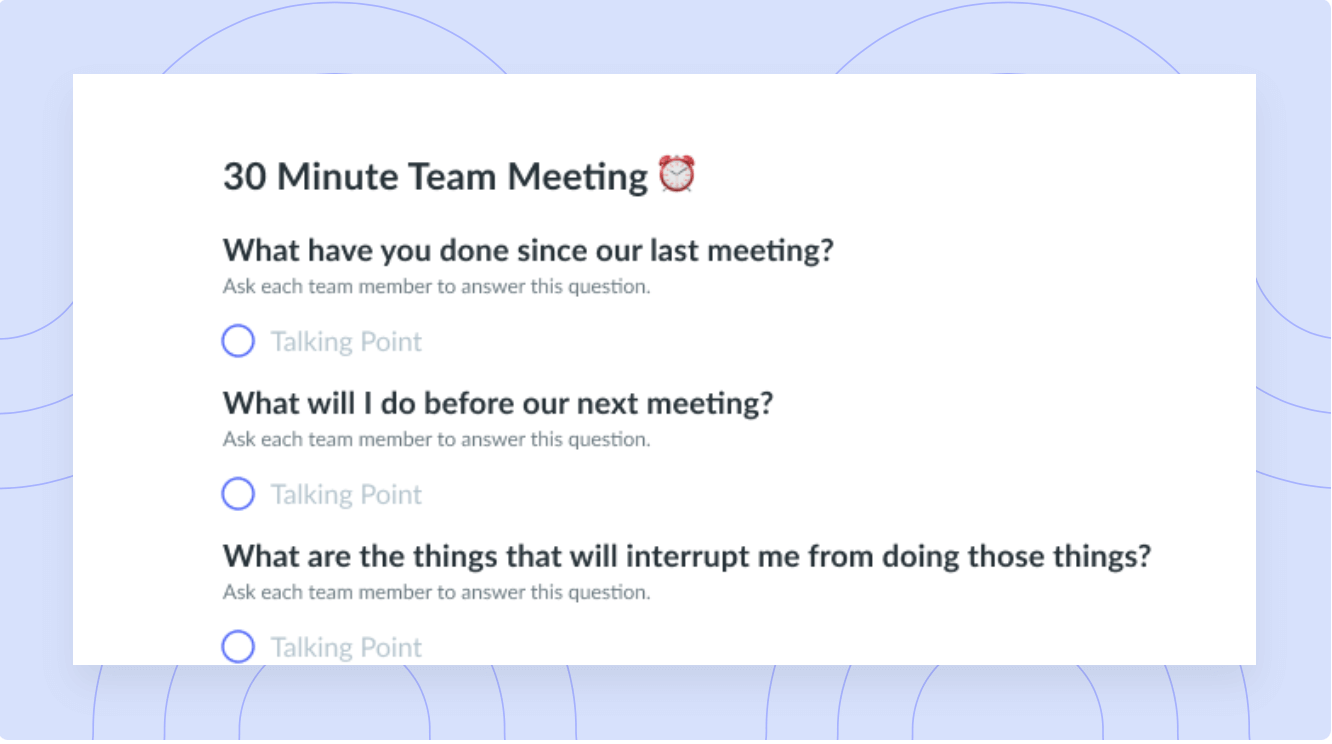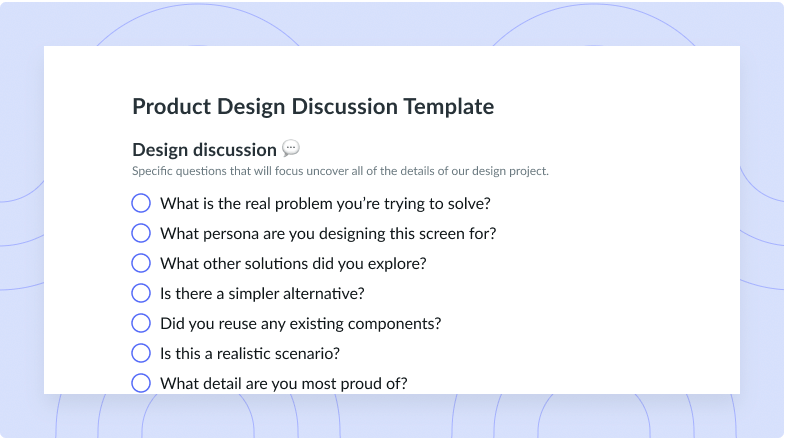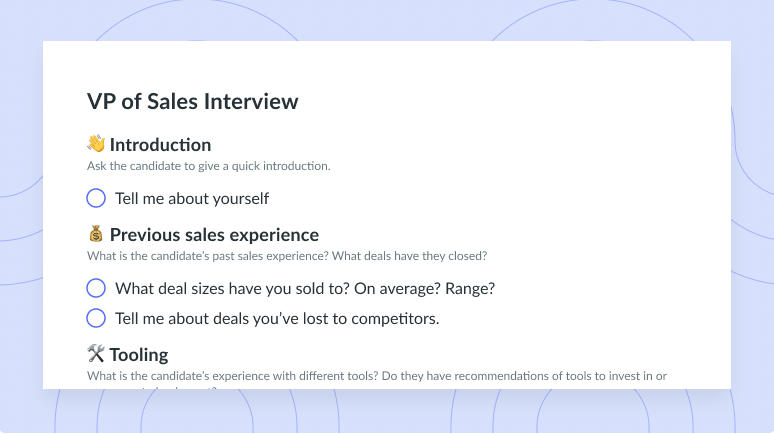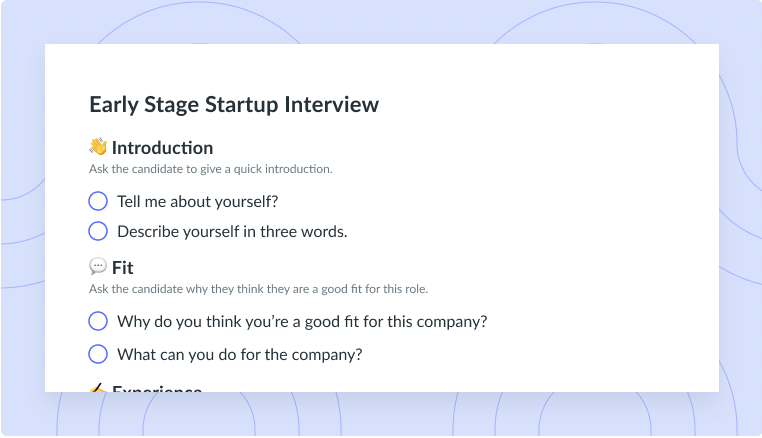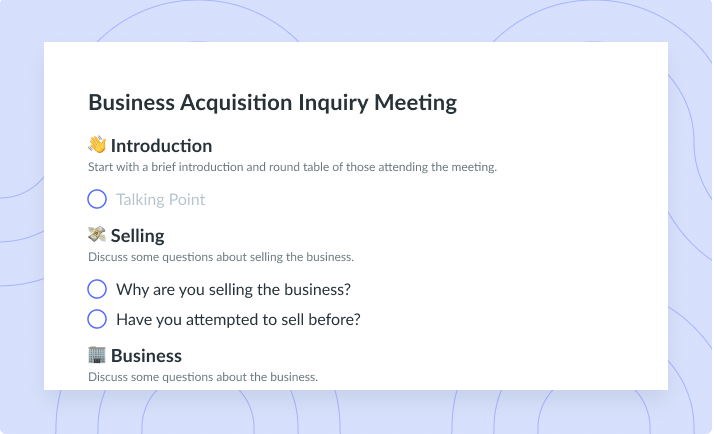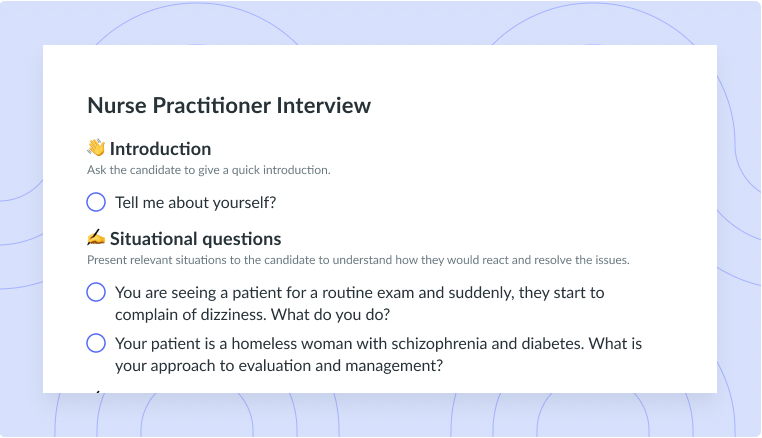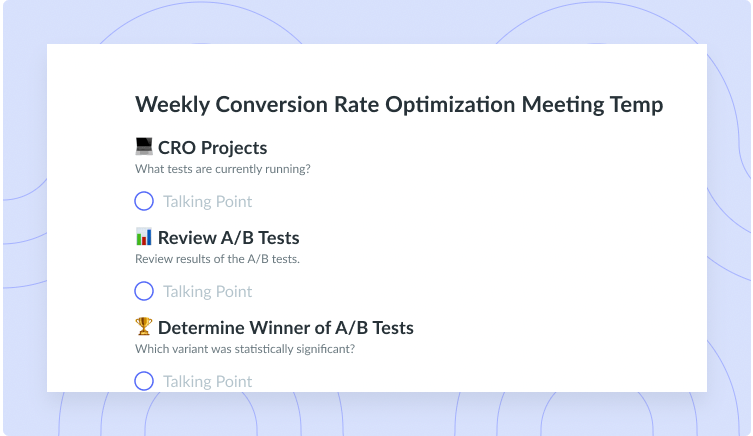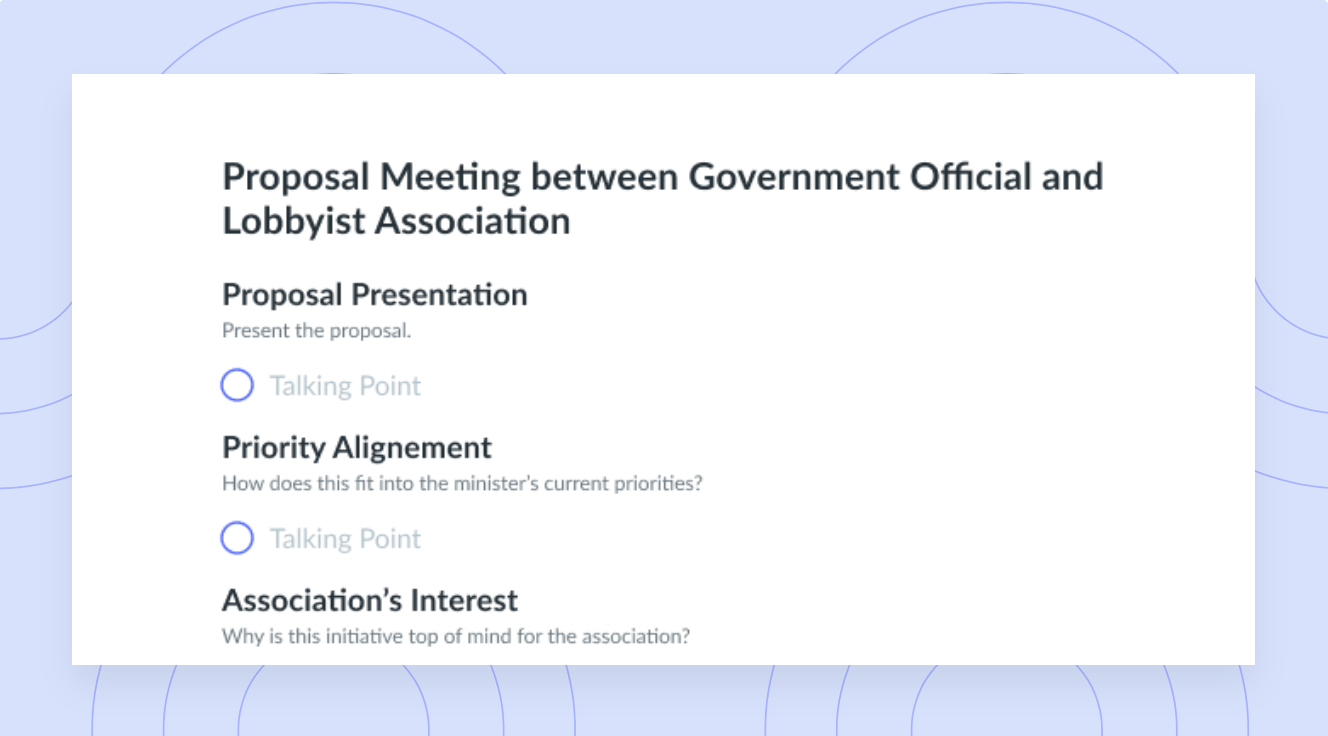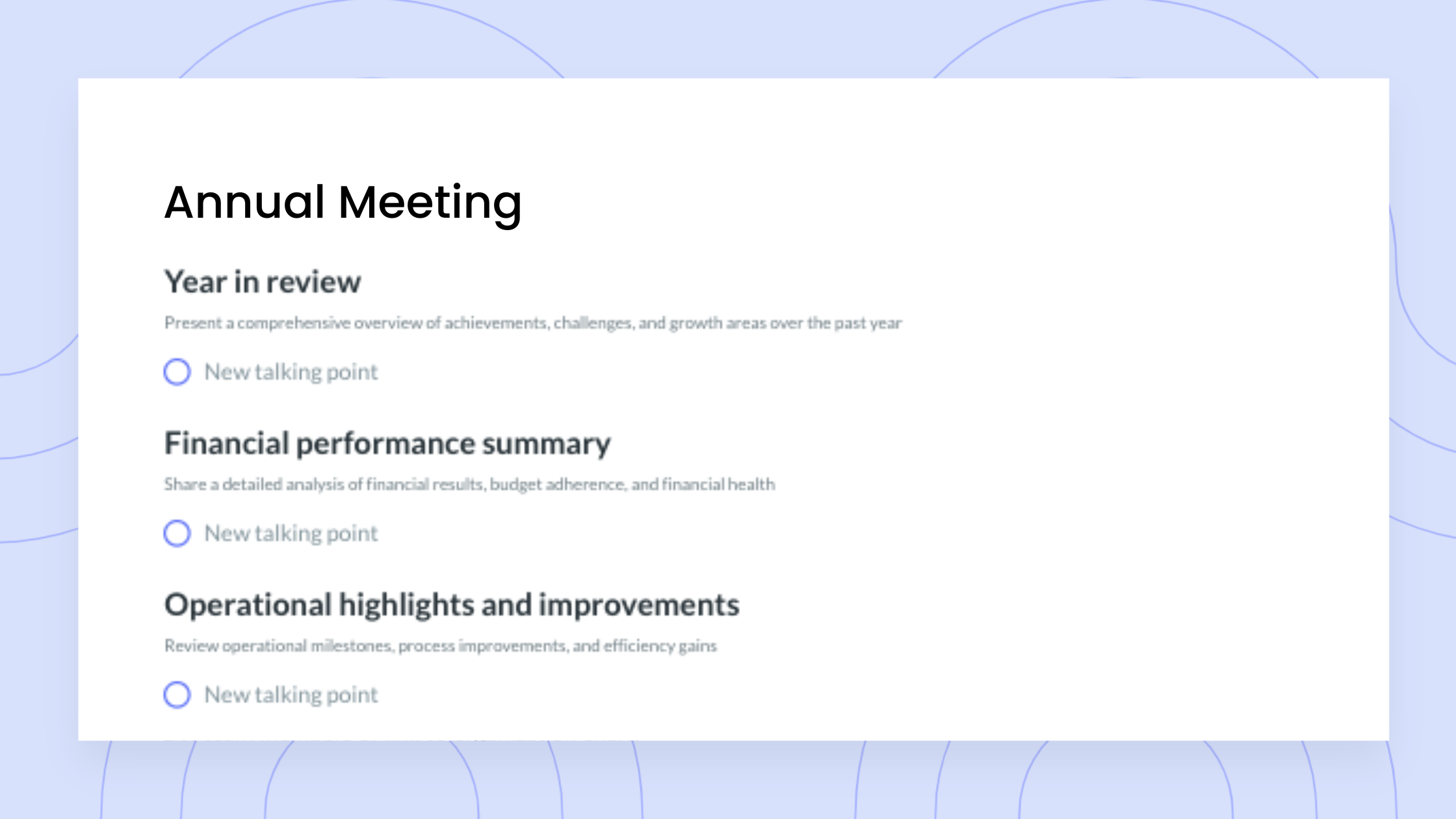How to Ask the Right Questions for the Best Answers [+ Free Templates]
Discover the different types of questions and how to ask the right ones to get the answers you want and need today.
Never underestimate the power of a good question! Humans ask questions to learn information, gain social skills, and build and maintain relationships. Forbes research shows us that at work, asking more questions helps us build emotional intelligence and other soft skills like teamwork, critical thinking, decision making, and problem-solving. Asking good questions can also help you develop the leadership skills necessary to make important changes at work and in your community.
Let’s discuss why asking the right question is important, the different types of questions you can ask, and how to ask the right questions to get the answers you need today!
- Why is it important to ask the right questions?
- Types of questions
- How to ask the right questions
- Free meeting agenda templates
Why is it important to ask the right questions?
We spend our earliest years being asked questions—math equations in school, what your favourite colour is, what you want to be when you grow up—but we’re never taught how to ask them.
Asking the right questions is important in business because it allows us to learn more about one another, our ideas, and a variety of other topics. Questions also help us to form meaningful relationships with our peers. When we understand our teammates’ points of view, we can communicate more effectively, thereby improving our own interpersonal skills.

Run delightful meetings
Increase meeting engagement and productivity with a collaborative agenda that the whole team can contribute to. Try using a tool like Fellow!
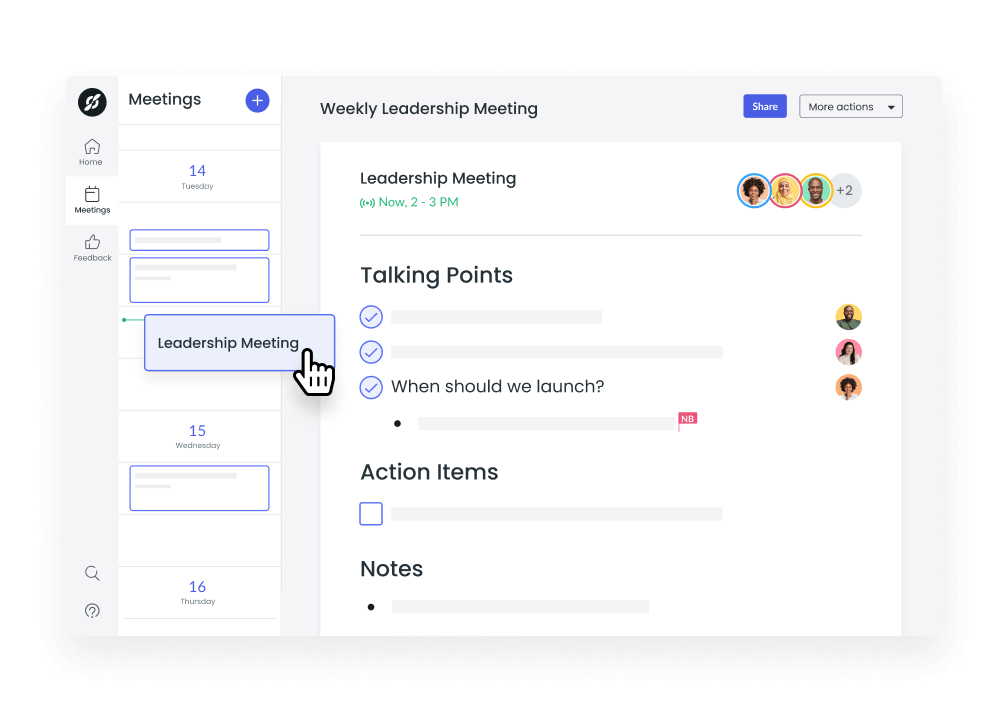
Types of questions
- Open-ended questions
- Close-ended questions
- Informational questions
- Reflective questions
- Leading questions
- Curious questions
- Complex questions
- Simple questions
1Open-ended questions
An open-ended question is any question that requires more than a simple “yes” or “no” answer. When you ask this type of question, the respondee shouldn’t feel limited in their ability to respond thoughtfully. Open-ended questions should be unbiased and easy to understand. For example, if you’re interviewing a candidate for your team and want to see if they’re a good fit, you could ask questions like: “what do you see as your strengths?” and “what accomplishments are you particularly proud of?”. Use open-ended questions to enhance communication at work and home!
2Close-ended questions
A close-ended question can usually be answered with “yes” or “no.” As the name suggests, these questions often close the conversation, rather than empowering the individual to answer however they choose. You can ask a close-ended question when you’re collecting quantitative information as part of a survey or if you already have extensive context and only require a simple response. Some examples of close-ended questions include: “will you be looking to make a decision on this in the next three months?” and “have you spoken to everyone else involved in the project?”.
3Informational questions
Informational questions do exactly what you’d expect them to—provide you with information. Asking any question with the primary purpose of receiving information is unlikely to foster deep thought, but that doesn’t mean asking can’t pay off. Common informational questions such as “what happened?” and “what are my main responsibilities?” can be helpful when assessing a situation. Informational questions can also be used as a research tool.
4Reflective questions
Reflective questions may have little informational payoff for the individual asking, but they can be powerful. These questions focus on a person’s own experiences with specific concepts and processes. They can even help you and your team tap into unidentified thoughts and emotions, identify strengths and weaknesses, and assess your core beliefs and values. A few examples of reflective questions include: “what did you learn by working on this project that you didn’t know before?” and “how can I use the knowledge I have gained from this experience in the future?”.
5Leading questions
Leading questions push someone towards giving the answer you want or expect. When a lawyer in the courtroom starts their question with “isn’t it true that…”, they’re asking a leading question. These questions often assume a fact that hasn’t yet been established. You can ask a leading question if you’re trying to persuade a client to make a particular decision. Two examples include: “when would you like to sign up for our insurance plan?” and “don’t you think it would be better to do this?”.
6Curious questions
A curious question is phrased in a way that can elicit any possible response. These questions don’t have an agenda. Their purpose is simply to effectively communicate, understand another’s viewpoint, and do what the name implies: inspire curiosity. Curious questions promote inductive reasoning, which is a method of drawing conclusions by going from specific to general. Simply put, they expand the conversation! Some examples of curious questions include: “what do you think of this idea?” and “what solutions do you have to this potential upcoming challenge?”.
7Complex questions
Complex questions are overly lengthy and usually string together multiple questions that run together. These questions are often too complicated to allow people to think carefully and may even have the respondee asking you to repeat yourself. Only ask a complex question when the person has a clear understanding of each piece of the topic. Better yet, you can break one complex question into fewer, clearer questions. An example of a complex question is “when you said X, you reminded me how important Y is in helping our company grow. Bearing A in mind, how do you see B affecting your priorities moving forward?”.
8Simple questions
Simple questions are just that: simple. These are thought-provoking questions, and they’re often challenging to answer. When a question has little substance, the answers it can produce are limitless. Some examples of simple questions include: “what is most important to you?”, “what is your favourite thing about your job?”, and “what do you wish you could change about the world?”.
How to ask the right questions
1Determine what you want
Think carefully about what information you’re striving to get before you ask a question. Ask yourself: “what information do I need from the person?” and “why am I in need of information in the first place?”. The answers to these questions will help you guide your own question asking. If you have many questions to ask a colleague or multiple members of your team, use Fellow’s collaborative agenda to prepare your questions in advance. Send a copy of the agenda at least 24 hours before the meeting starts so attendees can prepare thoughtful answers in advance.
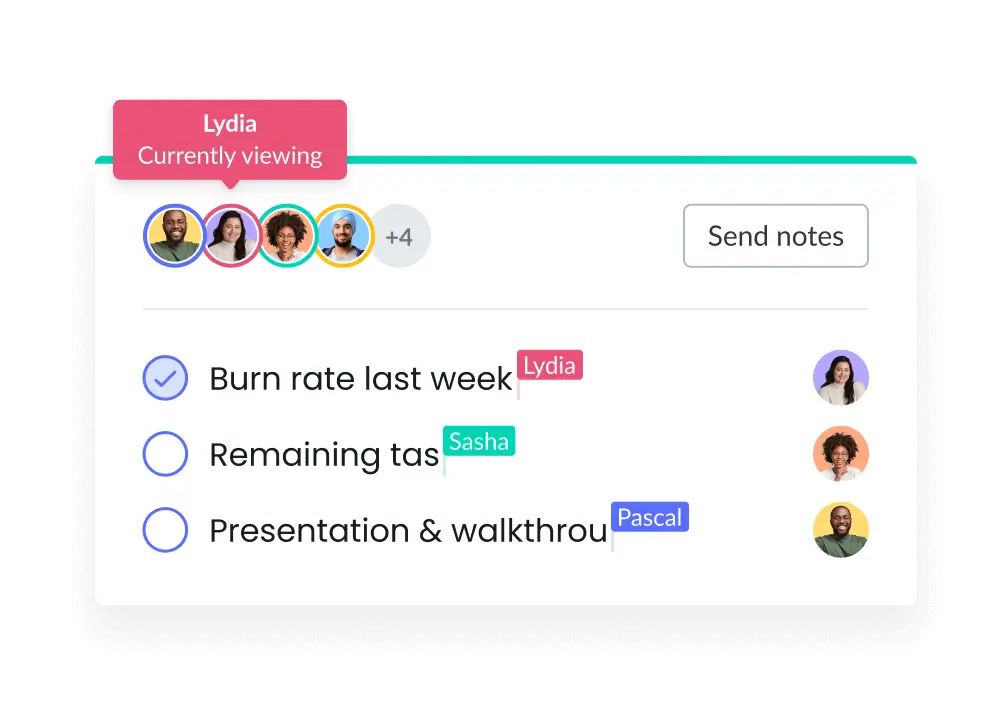
2Ask follow-up questions
Most people are guilty of asking a question or two and making assumptions about any missing details. Practice effective communication by asking follow-up questions during and after each conversation with a teammate. The next time you ask a question, follow up by asking your original question slightly differently. Link your teammate’s responses to something they said earlier to synthesize information rather than just hear it. Lastly, ask about the implications of their answer. Rather than accepting answers at face value, seek to understand the person by asking a follow-up question like: “what are the consequences of being an idealistic person?” or “how does your perfectionism play out in the workplace?”.
3Avoid rhetorical questions
If you’re trying to create a dramatic effect or make a point, don’t frame it as a question. Avoid rhetorical questions by ensuring everything you’re asking your teammates adds value. Rhetorical questions build tension by suggesting that an argument in favour of or against something is about to follow. These questions can also prompt individuals to answer in a way you don’t anticipate or can wrongfully be used in place of a careful argument. Remember, rhetorical questions are nothing more than factless accusations.
4Be an active listener
Active listening is the act of providing your undivided attention to other people or another person while they communicate their feelings, beliefs, or other information. You can practice this technique in your everyday work life by paying close attention to people when they’re speaking, using verbal and non-verbal cues, and asking and giving feedback throughout the conversation. Make sure the other party feels heard when they’re responding to your question by ensuring they’re finished communicating their point before you begin speaking again or ask any follow-up questions. Rather than jumping in with your opinion, paraphrase what the respondee has said to gain a stronger understanding of their message. Lastly, show interest in their answers by asking further open-ended questions to keep the conversation going.
Free meeting agenda templates to help you ask productive questions
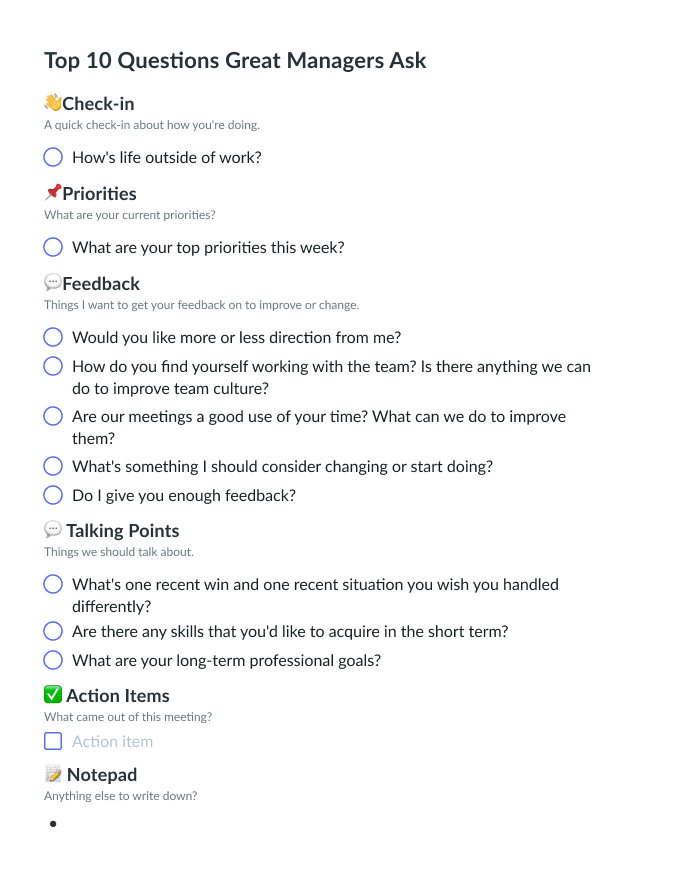
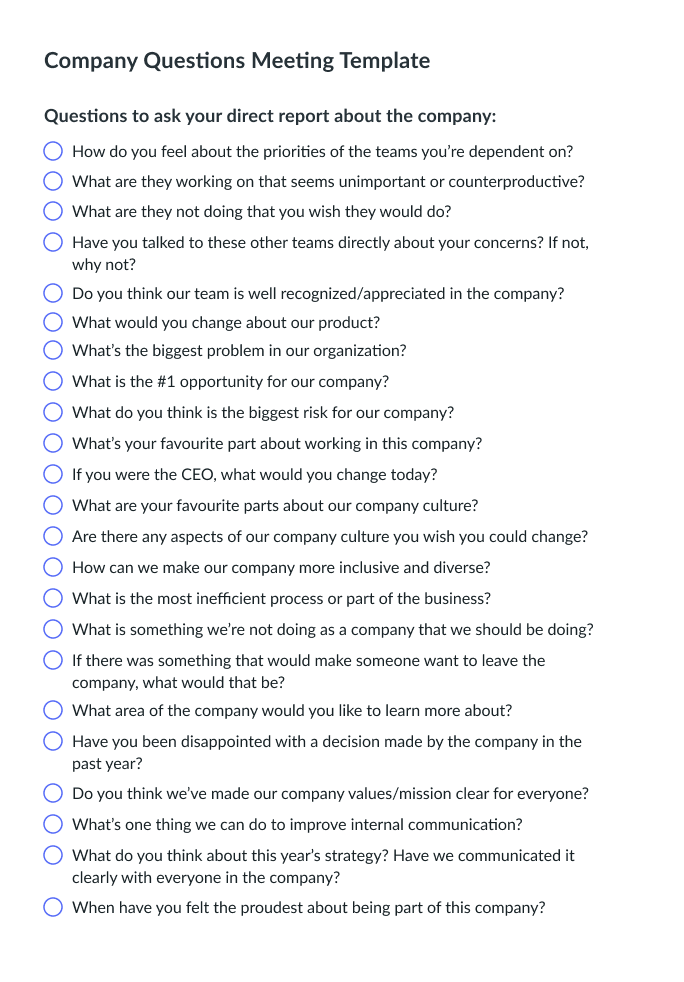
Parting advice
Powerful questions can yield powerful answers, and can further transform into incredible results. Questions increase commitment and can improve the outcome of situations! When you stop giving advice and start engaging with the other party’s thoughts, you create possibilities, encourage deeper understanding, and get new insights. The next time you have to ask a question, think about your motives. Aim to ask questions that are open-ended, reflective, curious, informational, and simple. If needed, throw a close-ended, leading, or complex question in the mix.
Above all else, remember that the power to question is the basis of all progress. Never stop seeking out answers as long as you’re looking to make changes.

![Binary vs. Adaptive Questions [+ 30 Examples]](https://fellow.app/wp-content/uploads/2022/08/Binary-vs.-Adaptive-Question.jpg)







